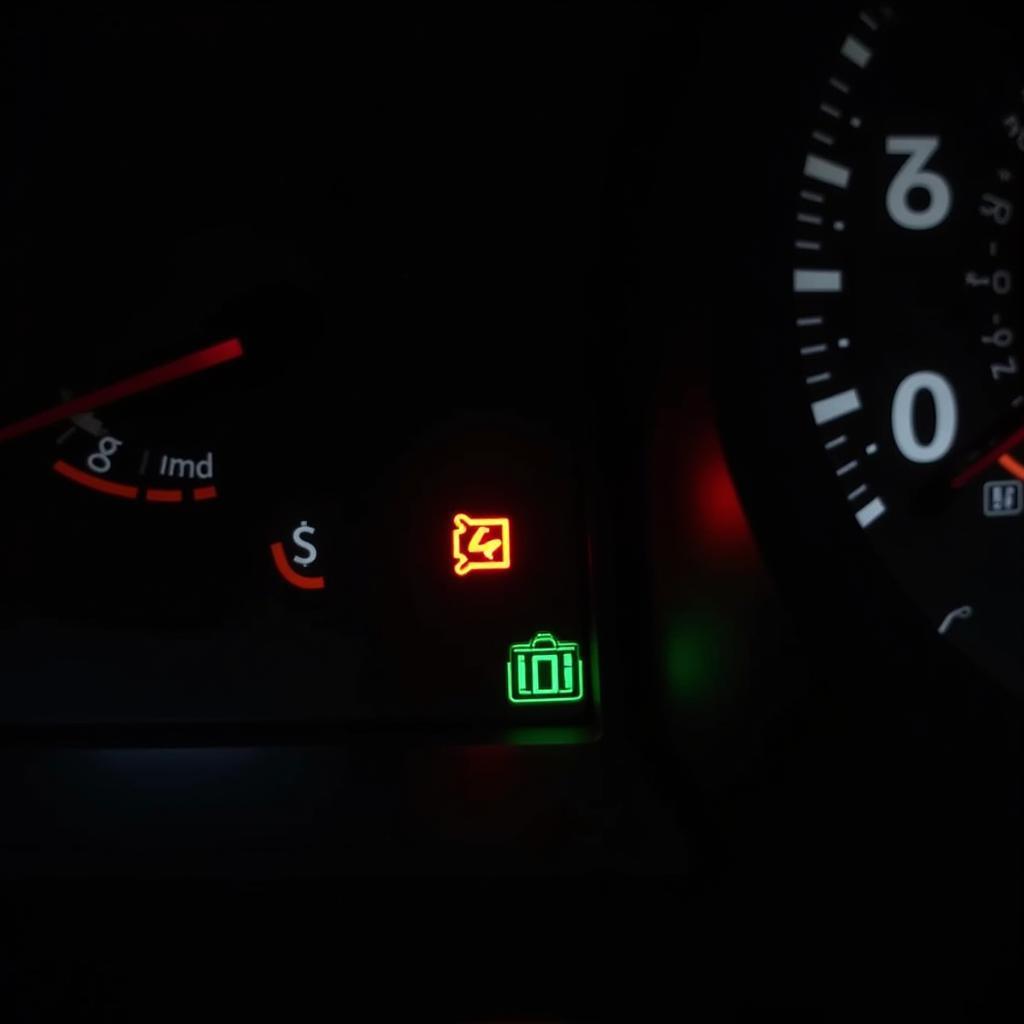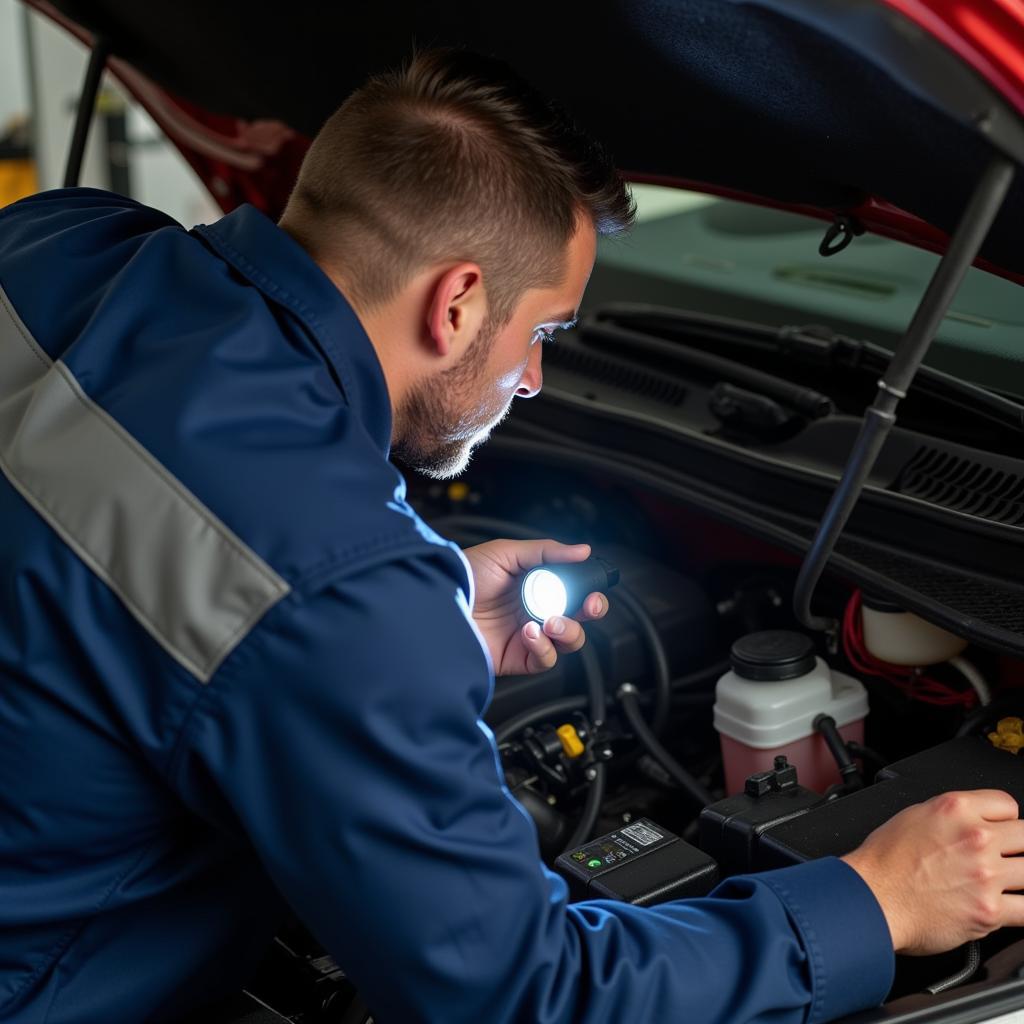How Often Do I Have to Get My Car Serviced?
Knowing how often to service your car can feel like deciphering ancient hieroglyphics. Is it every 3,000 miles? 5,000? What even is a service, anyway? Don’t worry, you’re not alone in this confusion. This guide will walk you through everything you need to know about car service intervals, so you can keep your ride running smoothly for years to come.
The Old Days of “3,000 Miles or 3 Months”
Remember your grandpa swearing by the “3,000 miles or 3 months” rule for oil changes? While this was a decent guideline in the past, modern vehicles and advancements in oil technology have rendered it largely obsolete.
“Sticking to the old 3,000-mile rule is like using a rotary phone in the age of smartphones,” says Jake Carter, Senior Automotive Technician at Carter’s Garage. “It’s simply outdated. Today’s cars are built differently, and the oils are far superior.”
Consulting the Oracle: Your Car’s Owner’s Manual
The single most reliable source for your car’s recommended service intervals is the owner’s manual. This sacred text, often overlooked, outlines the manufacturer’s specific recommendations based on your car’s make, model, and year.
Look for sections titled “Maintenance Schedule” or “Service Intervals.” You’ll find detailed information on:
- Oil change frequency: This might be based on mileage or time, whichever comes first.
- Filter replacements: This includes your engine air filter, cabin air filter, and oil filter.
- Fluid checks and changes: This covers your coolant, brake fluid, transmission fluid, and more.
- Spark plug replacement: This ensures efficient combustion in your engine.
- Belt and hose inspections: These components can wear out over time and cause serious issues if not addressed.
Factors That Influence Service Intervals
While your owner’s manual is your guiding star, several factors can affect how often your car needs service:
- Driving conditions: Frequent stop-and-go city driving puts more stress on your vehicle than highway driving, requiring more frequent servicing.
- Climate: Extreme heat or cold can impact fluid viscosity and component wear.
- Driving style: Aggressive driving with rapid acceleration and braking puts more strain on your car, necessitating more frequent maintenance.
- Vehicle age and mileage: Older vehicles and those with higher mileage often require more frequent check-ups and preventative maintenance.
 Car dashboard illuminated with various warning lights
Car dashboard illuminated with various warning lights
Warning Signs Your Car Needs a Check-Up
Even if you haven’t hit your recommended service interval, pay attention to these warning signs:
- Unusual noises: Squealing, grinding, knocking, or clicking sounds could indicate a problem.
- Fluid leaks: Check your garage floor or driveway for any drips or puddles.
- Warning lights on your dashboard: Don’t ignore these! They’re trying to tell you something.
- Changes in performance: This includes decreased fuel efficiency, sluggish acceleration, or difficulty starting.
- Vibrations or shaking: This could be a sign of tire problems, alignment issues, or something more serious.
“Your car often gives you subtle hints that something is amiss,” says Maria Sanchez, Certified Mechanic and owner of Sanchez Auto Repair. “Ignoring these early warning signs can lead to more significant (and expensive) problems down the road.”
The Importance of Regular Car Service
Think of regular car service as preventative healthcare for your vehicle. Just like regular doctor visits keep you healthy, routine maintenance helps prevent costly repairs and extends the lifespan of your car.
Here’s why it matters:
- Safety: Regular maintenance ensures your car is safe to drive, especially when it comes to brakes, tires, and other critical components.
- Reliability: A well-maintained car is less likely to leave you stranded on the side of the road.
- Resale value: A comprehensive service history can significantly increase your car’s resale value.
- Fuel efficiency: A well-tuned engine runs more efficiently, saving you money on gas.
 Mechanic performing a thorough engine inspection during car service
Mechanic performing a thorough engine inspection during car service
Beyond the Basics: Additional Service Considerations
In addition to the regular maintenance outlined in your owner’s manual, consider these extra services based on your car’s age, mileage, and driving conditions:
- Timing belt replacement: This is a critical service typically required between 60,000 and 100,000 miles.
- Transmission fluid flush: This can help prolong the life of your transmission.
- Coolant flush: This prevents corrosion and keeps your engine running at the optimal temperature.
- Brake fluid flush: This maintains brake responsiveness and prevents corrosion in the braking system.
Conclusion
While there’s no one-size-fits-all answer to the question of how often to service your car, your owner’s manual is your best guide. By following the recommended service intervals and paying attention to your car’s warnings, you can ensure it stays in top shape for years to come. Remember, regular car service is an investment in your safety, your wallet, and the life of your vehicle.
FAQ
1. What does a basic car service include?
A basic car service typically includes an oil change, oil filter replacement, and a general inspection of your vehicle’s vital systems, including brakes, tires, fluids, lights, and belts.
2. How much does a car service cost?
The cost of a car service can vary widely depending on your car’s make and model, the type of service required, and your location.
3. Can I service my car myself?
While some basic maintenance tasks can be performed at home, it’s generally recommended to have your car serviced by a qualified mechanic, especially for more complex procedures.
4. What happens if I don’t service my car regularly?
Neglecting your car’s service needs can lead to reduced performance, decreased fuel efficiency, costly repairs, and safety issues.
5. How can I find a reputable car service center?
Ask for recommendations from friends, family, or online reviews. Look for ASE-certified mechanics and shops that offer warranties on their work.
Need help with car service?
Contact us via WhatsApp: +1(641)206-8880, or email: [email protected]. Our team is available 24/7 to assist you.

